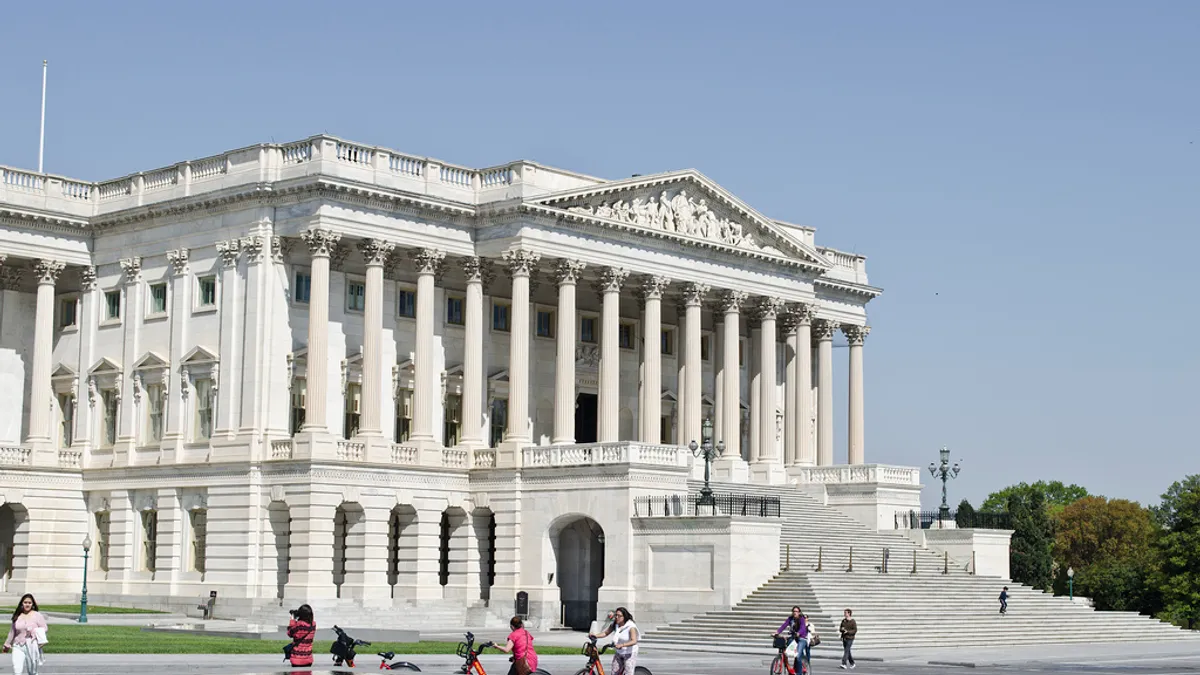Dive Brief:
- The medical device industry is not hopeful standalone legislation repealing the medical device tax is likely to pass this year, AdvaMed CEO Scott Whitaker and Stryker CEO Kevin Lobo told reporters at The MedTech Conference Monday.
- With the 2.3% device tax, enacted as part of the Affordable Care Act, set to go back into effect at the start of 2020, attaching a one or two-year delay, or full repeal, to a year-end legislative package is the trade lobby's current strategy.
- Earlier this month, the Senate Finance Committee released a bipartisan taskforce report on multiple expiring temporary health tax provisions, but lawmakers tasked with studying long-term solutions "did not come to a consensus on the expiring provisions," including the medical device tax.
Dive Insight:
The medical device excise tax, which was in effect from Jan. 1, 2013, to Dec. 31, 2015, will have been suspended for four years at the end of 2019.
On Tuesday, more than 600 stakeholder organizations including AdvaMed, the Medical Device Manufacturers Association and the Medical Imaging & Technology Alliance published a letter urging congressional leadership on both sides of the aisle to permanently repeal the tax.
The Senate Finance Committee taskforce received 56 comments on the medical device tax, with device manufacturers, patient advocates, medical researchers and some provider groups expressing opposition to it coming back into effect. No comments supporting the tax were submitted.
"Stakeholders advocated for full repeal of the tax over short-term suspensions, in order to allow for the certainty necessary to plan for long-term investments in research and development," the taskforce report states.
Whitaker told reporters it would be ideal if the House and Senate moved standalone repeal legislation, but added "that's not the way Congress seems to behave today."
"It tends to be that they act late in the year on one large piece of legislation, or maybe two," Whitaker said. "You're forced to try to engage in a way to get your issue connected to that large piece of legislation, that seems to be the trend again this year."
Lobo said the comparative cost of a further delay of the medical device tax is fairly low compared to the Cadillac tax, another levy that's part of the ACA on pricey health plans.
"The likelihood of full repeal is fairly low with the political dynamics at play," Lobo said. "But I think a multi-year suspension is probably the most likely scenario."
A Sept. 4 Cowen Washington Research Group policy note predicted a two-year moratorium on the device tax is the most likely outcome instead of full repeal.
If AdvaMed is not able to obtain a delay or repeal before the tax goes back into effect, it will continue to lobby Congress to pass a delay or repeal retroactively. Cowen analysts predicted "Congress would likely approve a retroactive fix early next year if need be."
"If that's what we have to do, then we'll do it," Whitaker said. "But this is not like a tax extender or a typical device tax. With the device tax, it's an excise tax you start paying two weeks into the year. Once you start writing those checks, to find a way to refund those, it gets really clunky from an administrative standpoint."











